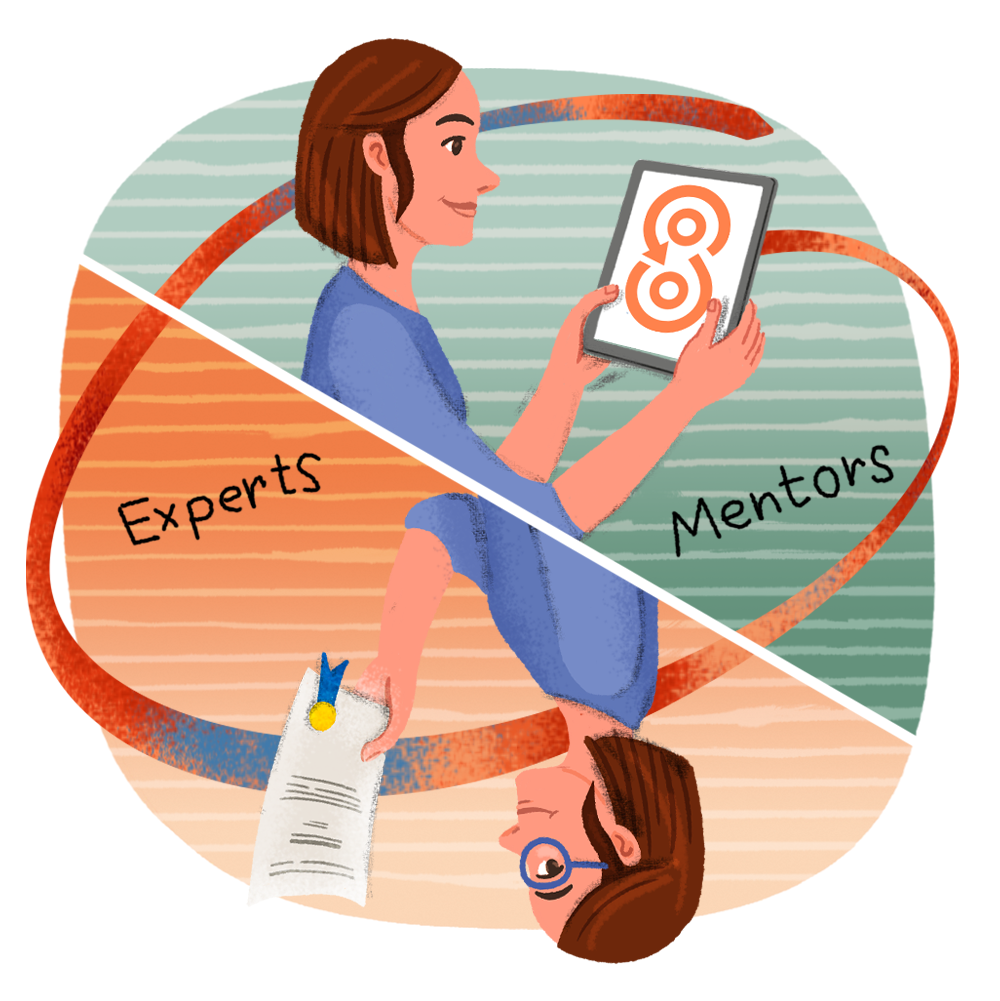Rediscovering the Fundamentals: Why Experts Become Mentors

There are many reasons to become a Mentor. Whether you’re going through a career transition, looking to cut down your working hours, or just looking for a job that will give you more control over your time, mentoring is an excellent way to put your skills to work.
But did you know that becoming a Mentor could actually improve your own skills? Today we’ll be talking about why so many experts in their fields choose to become Mentors and how teaching could help you to reach amazing new heights.
When Experts Become Innovators

Once you become an expert it can be really hard to continue developing your skills. In a sense, the longer you spend doing something, the less there is to learn. Even if there are new techniques or perspectives out there, finding them can be a serious challenge because most of the advice will be the same information you’ve heard a hundred times before.
When people reach this level of expertise, the only way to learn is through innovation. Put simply, they’ve learned everything that can be taught so now it’s time to strike out and find their own answers.
The problem is that innovation is much harder than just learning. Not only does it require a huge base of knowledge, but it also demands a level of creative thinking and a willingness to try new and unconventional approaches. That being said, there are some simple ways to trick your brain into giving you new ideas and one of the easiest is to revisit the basics.
Strengthening Your Foundations
Being a Mentor means dedicating a lot of your time to teaching the foundations of your skill. In doing so, you’ll be revisiting ideas you might not have actively thought about in years – ideas you may well take for granted.
Not only is this a chance to test your learning against the basics and brush up on the things you might have forgotten over time, but it’s also a chance to reconsider their implications. By taking the time to go back and engage with the core principles of your skill, you might well open up whole new avenues for thought and understanding.
Learning New Perspectives
Ignorance is rarely a good thing but occasionally it can lead to creative thinking or new perspectives. After all, thinking outside the box is a lot easier for those who haven’t built a box to think in.
No two people will ever think about something quite the same way so, in a sense, working with your Mentee is an act of translation. You’ll have to find ways to explain your ideas that will work for them, further encouraging you to re-engage with those ideas on a more fundamental level.
Furthermore, it’s possible that your Mentee’s perspective could be an excellent source for new insights. They’ll be coming at the topic from a different background to you and their experiences may lead them to see things in a new way.
While your Mentee won’t have the years of exposure to these ideas that you will, their fresh pair of eyes can inspire you to see things differently
Rethinking Your Assumptions
One part of the learning process that often goes overlooked is the assumptions we make along the way. As we learn, we get better and better at making assumptions, allowing us to focus on high level problems without having to constantly rethink the basics.
That being said, while experience usually teaches us to make better assumptions, allowing for more efficient decision making, those assumptions might not be as versatile as they seem. All this to say that, once in a while, it doesn’t hurt to check in with your perspective and ask yourself if the assumptions you’ve been running on are as accurate as they seem.
Mentoring can be a great tool for achieving this. When you’re explaining your process to someone else, you’re forced to explain the logic of what you do. As you break that down into digestible chunks, any flaws in that logic become far more apparent than they might have otherwise been.
This might sound like a cause for concern, but in practice this is a great thing. Rethinking your assumptions can allow you to broaden your approach to problems, finding new and creative solutions.
Are you ready to inspire yourself by inspiring someone else? When you become a Mentor, you’ll not only be earning money by sharing your skill, but pushing yourself to spark new ideas and rethink old ones. Sign up today with Career Navig8r and experience the power of mentoring for yourself!


